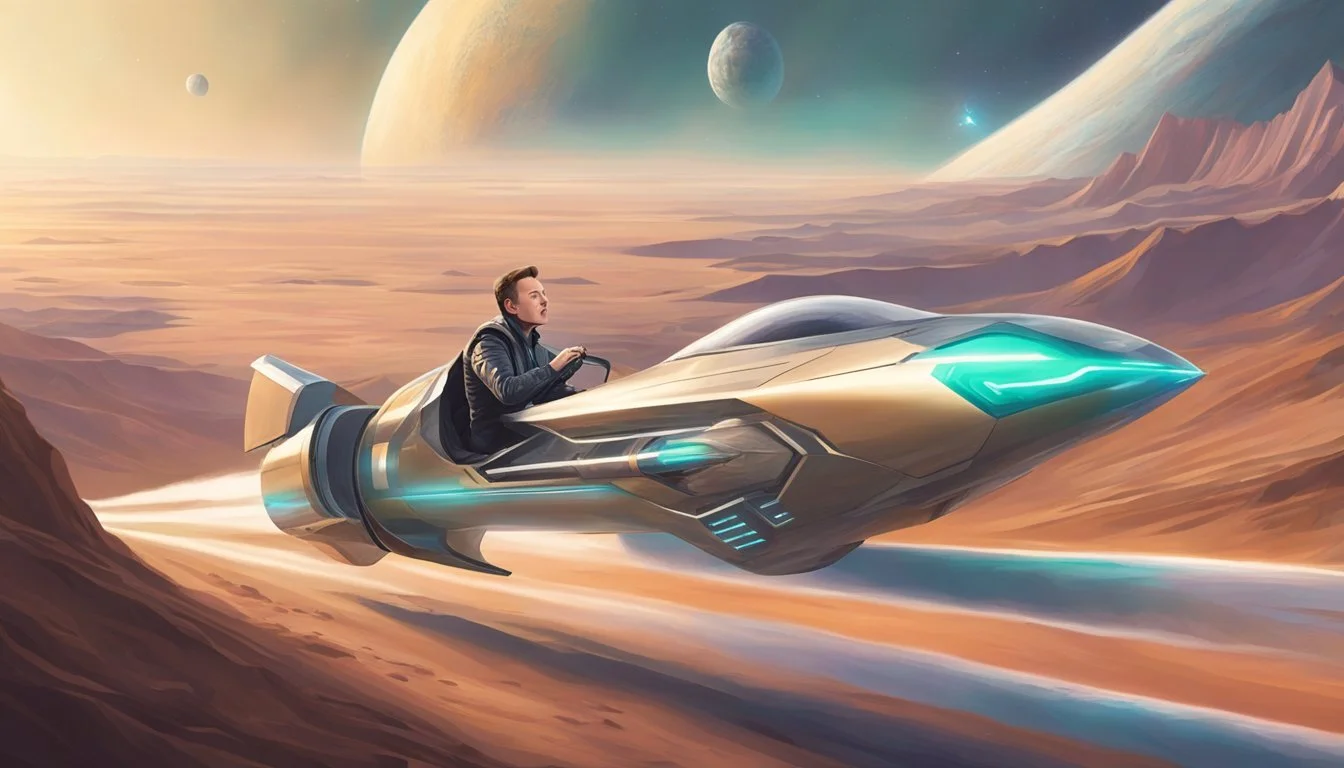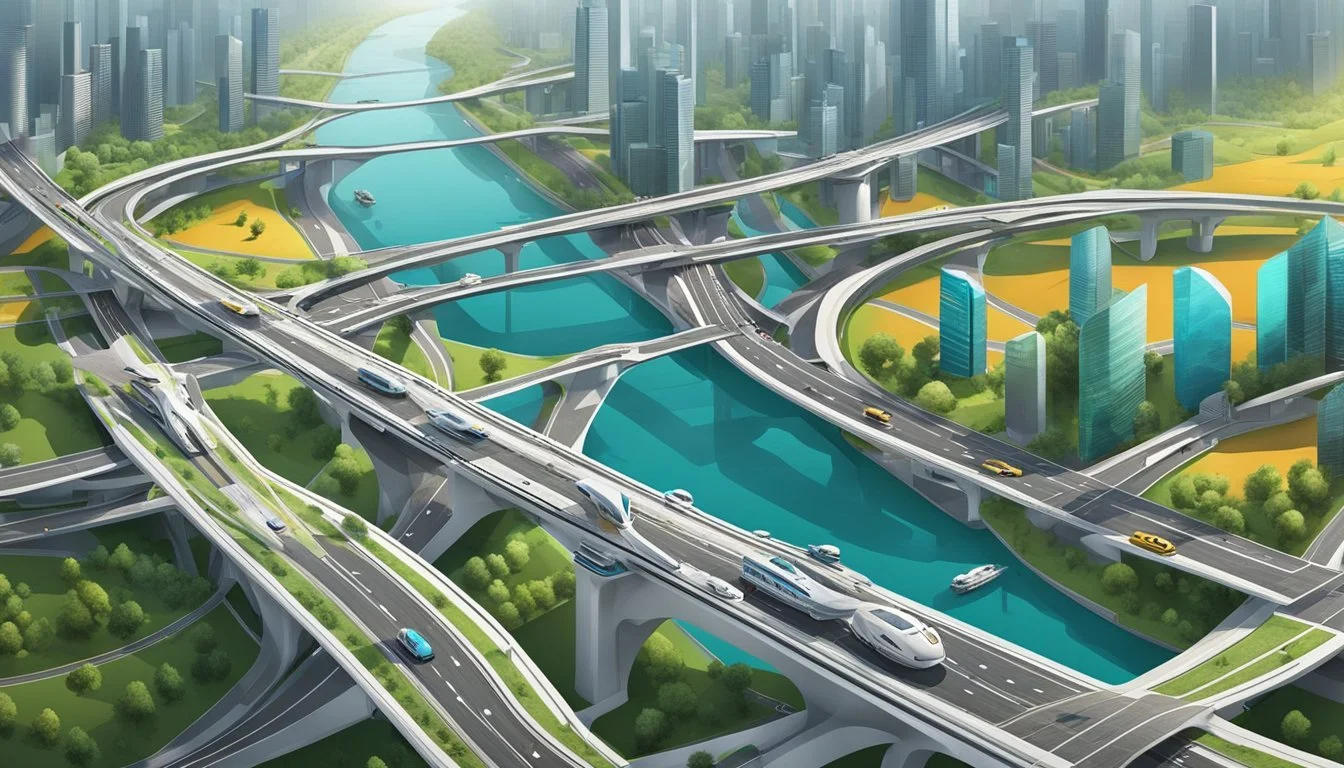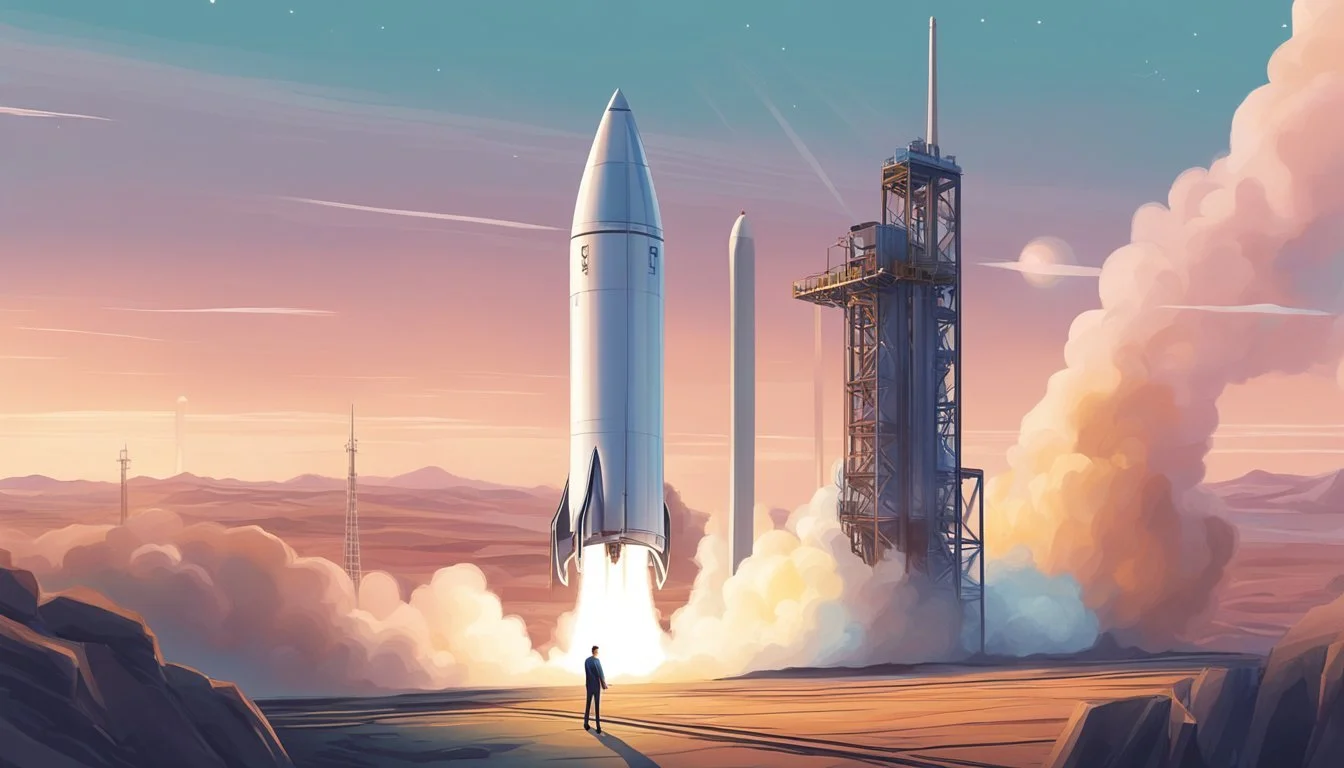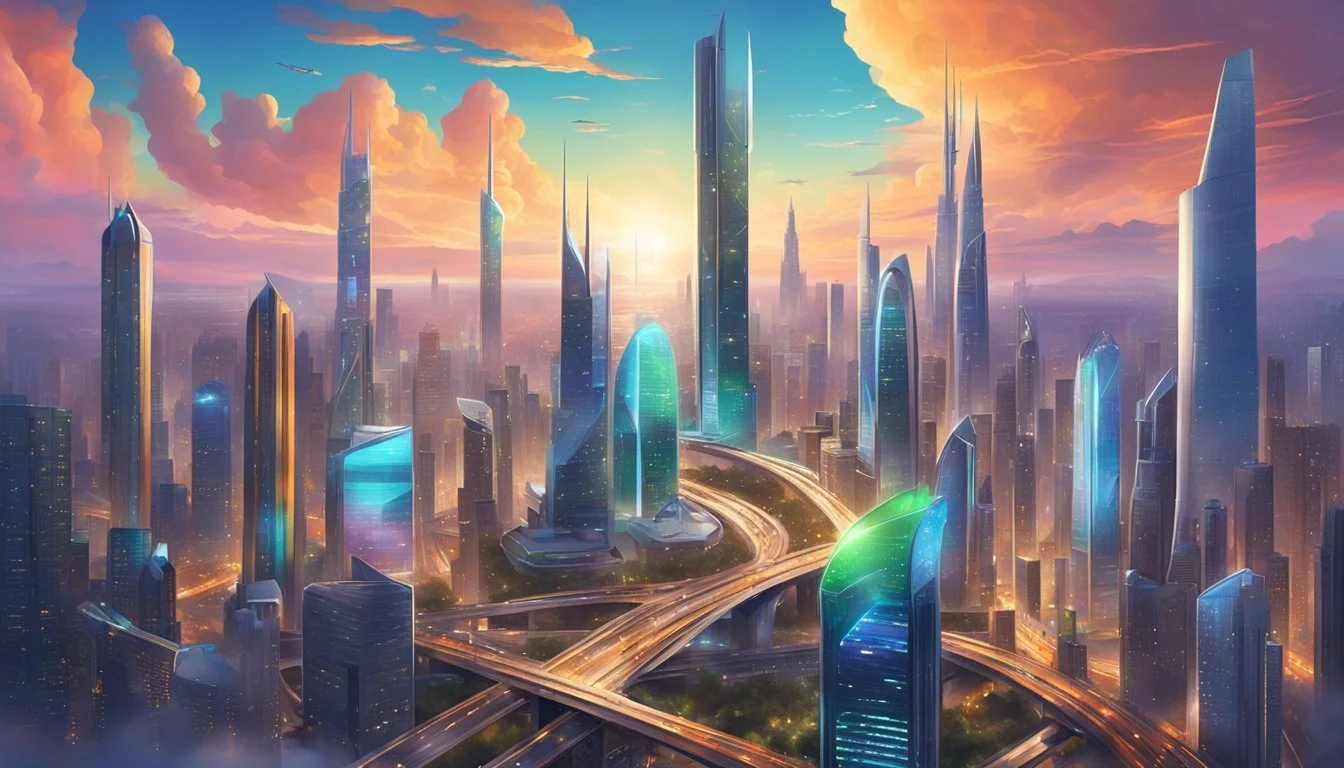Breaking Barriers: Elon Musk's Unconventional Approach in 'To the Limit' Explores Tech Mogul's Bold Strategies
Elon Musk's approach to innovation defies conventional wisdom. In his pursuit of groundbreaking technologies, Musk employs a unique problem-solving methodology that sets him apart from other entrepreneurs. At the core of Musk's strategy lies "first principles thinking," a technique that involves deconstructing complex challenges into their most basic elements and building solutions from the ground up.
This unconventional mindset has driven Musk to push boundaries across multiple industries. From revolutionizing electric vehicles with Tesla to pioneering private space exploration through SpaceX, his ventures consistently challenge the status quo. Musk's ability to envision possibilities beyond current limitations has become a hallmark of his entrepreneurial journey.
Musk's visionary thinking extends beyond immediate technological advancements. His ambitious projects often aim to address global challenges and shape the future of humanity. This forward-looking perspective, combined with his relentless drive to innovate, continues to inspire both admiration and skepticism within the tech industry and beyond.
Early Years and Entrepreneurial Beginnings
Elon Musk's journey from a curious child to a groundbreaking entrepreneur was marked by ambition, innovation, and bold risk-taking. His early experiences and education laid the foundation for his future ventures.
Formative Experiences and Education
Born in Pretoria, South Africa in 1971, Elon Musk showed an early aptitude for technology and problem-solving. As a child, he taught himself computer programming and sold his first software at age 12.
Musk's education took him from South Africa to Canada and finally to the United States. He studied physics and economics at the University of Pennsylvania, developing a strong foundation in science and business.
His time at Stanford University was brief. Musk left after just two days to pursue his entrepreneurial ambitions during the internet boom of the 1990s.
The Zip2 and PayPal Ventures
In 1995, Musk co-founded Zip2, a web software company providing business directories and maps for newspapers. The venture faced initial challenges, but Musk's persistence paid off.
Compaq acquired Zip2 for nearly $300 million in 1999. This success fueled Musk's next project: X.com, an online financial services company.
X.com merged with Confinity to form PayPal in 2000. The company revolutionized online payments, attracting millions of users.
eBay purchased PayPal for $1.5 billion in 2002. This sale provided Musk with the capital and experience to pursue even more ambitious projects in the years to come.
Revolutionizing the Automotive Industry
Elon Musk's impact on the automotive sector through Tesla has been transformative. His vision has accelerated the adoption of electric vehicles and sustainable energy solutions, reshaping the industry landscape.
The Rise of Tesla
Tesla Motors, co-founded by Elon Musk in 2003, emerged as a disruptive force in the automotive world. Musk became CEO in 2008, steering the company towards ambitious goals.
Tesla's first production car, the Roadster, debuted in 2008. It proved electric vehicles could be high-performance and desirable.
The Model S, launched in 2012, marked Tesla's entry into the luxury sedan market. Its success challenged established automakers and garnered critical acclaim.
Tesla's direct-to-consumer sales model bypassed traditional dealerships, sparking industry debates and legal challenges in several states.
Electrifying Innovation in Electric Vehicles
Tesla's vehicles incorporate cutting-edge technology and design. The company prioritizes range, performance, and user experience in its products.
Over-the-air software updates allow Tesla to improve vehicle functionality remotely, a feature now emulated by other manufacturers.
Autopilot, Tesla's advanced driver-assistance system, has pushed the boundaries of autonomous driving technology. It continues to evolve with each iteration.
The Cybertruck, unveiled in 2019, showcases Tesla's unconventional approach to vehicle design and manufacturing. Its angular, stainless steel body challenges traditional pickup truck aesthetics.
Battery Packs and Sustainable Energy
Tesla's advancements in battery technology have been crucial to its success. The company has consistently improved energy density and reduced costs.
The Gigafactory concept, introduced by Tesla, aims to scale battery production and reduce manufacturing costs through vertical integration.
Tesla Energy, a division of the company, produces solar panels and Powerwall home batteries. This expansion into sustainable energy solutions complements the automotive business.
The development of new battery chemistries, such as the 4680 cell, promises increased range and lower production costs for future Tesla vehicles.
Pushing Boundaries in Space Exploration
Elon Musk's SpaceX has revolutionized the aerospace industry through innovative technologies and ambitious goals. The company's achievements in reusable rockets, plans for Mars colonization, and strategic partnerships have reshaped the landscape of space exploration.
SpaceX and the Reusable Rocket Revolution
SpaceX's development of reusable rocket technology has dramatically reduced launch costs. The Falcon 9 and Falcon Heavy rockets can land their first stages for refurbishment and reuse.
This innovation has made space access more affordable and frequent. SpaceX has successfully launched and landed rockets multiple times, proving the viability of their approach.
The company's Starship project aims to take reusability even further. This fully reusable spacecraft is designed for missions to the Moon, Mars, and beyond.
Mars Colonization: A Vision in Progress
Musk's goal of establishing a human presence on Mars drives SpaceX's long-term strategy. The company is developing the Starship spacecraft specifically for this purpose.
SpaceX plans to send cargo missions to Mars before attempting human landings. These missions will test life support systems and establish initial infrastructure.
Challenges include radiation protection, resource utilization, and long-term habitation. SpaceX is working on solutions like in-situ resource utilization to produce fuel and supplies on Mars.
Partnerships, Competitions, and Space Policy
SpaceX has formed key partnerships with NASA and commercial entities. The company's Crew Dragon spacecraft now regularly transports astronauts to the International Space Station.
These collaborations have accelerated space technology development and reduced costs for government space programs. SpaceX also competes with other private space companies, driving further innovation.
Musk has been vocal about space policy, advocating for increased funding and streamlined regulations. His efforts have influenced discussions about the future of space exploration and commercialization.
Tackling Traffic and Infrastructure Challenges
Elon Musk has set his sights on addressing urban congestion through innovative underground transportation systems. His approach aims to revolutionize city transit and alleviate surface-level traffic issues.
The Boring Company and Urban Transit Solutions
The Boring Company, founded by Musk in 2016, focuses on constructing underground tunnels for high-speed transportation. These tunnels are designed to accommodate electric vehicles on autonomous sleds, moving at speeds up to 150 mph.
The company's first operational tunnel opened in Las Vegas in 2021, connecting parts of the Las Vegas Convention Center. This 1.7-mile loop demonstrates the potential for expanded underground transit networks.
Musk envisions a network of tunnels beneath major cities, potentially reducing above-ground traffic and travel times. The Boring Company uses innovative drilling techniques to create tunnels more quickly and cost-effectively than traditional methods.
Critics question the scalability and environmental impact of these tunnel systems. However, proponents argue that underground transit could significantly reduce urban congestion and emissions from idling vehicles in traffic.
Advancing Human Cognition and Accessibility
Elon Musk's ventures extend beyond transportation and space exploration to enhancing human cognitive capabilities. His ambitious projects aim to push the boundaries of human-machine interaction and improve accessibility for those with neurological conditions.
Neuralink: Bridging Brains and Machines
Neuralink, founded by Musk in 2016, focuses on developing brain-computer interfaces (BCIs) to directly connect the human brain with external devices. The company's goal is to create high-bandwidth, minimally invasive neural implants that could potentially treat neurological disorders and enhance cognitive functions.
In January 2024, Musk announced the successful implantation of a Neuralink device in a human subject. This milestone marks a significant step towards realizing the company's vision of merging human intelligence with artificial intelligence.
Neuralink's technology has the potential to revolutionize accessibility for individuals with paralysis or other neurological conditions. By enabling direct communication between the brain and external devices, it could restore mobility and independence to those who have lost motor functions.
The company's approach reflects Musk's penchant for first principles thinking, challenging conventional methods in neurotechnology. While promising, Neuralink's work raises important ethical questions about the future of human enhancement and the potential risks associated with brain-machine interfaces.
Harvesting the Power of the Sun
Elon Musk champions solar energy as a pivotal solution for global energy needs. His vision extends beyond current technological limitations, aiming to revolutionize how we harness and utilize the sun's vast potential.
SolarCity's Role in Renewable Energy
SolarCity, founded in 2006, became a cornerstone of Musk's solar energy strategy. The company pioneered innovative financing models, making solar panels more accessible to homeowners. This approach significantly boosted residential solar adoption across the United States.
SolarCity's merger with Tesla in 2016 further amplified its impact. The integration allowed for synergies between solar power generation and energy storage solutions. This combination proved crucial in addressing intermittency issues often associated with renewable energy sources.
Solar Energy: Beyond Conventional Power Grids
Musk's vision for solar energy transcends traditional power grids. He advocates for large-scale solar installations capable of powering entire regions. This concept challenges the current centralized energy distribution model.
Technological advancements in solar panel efficiency and energy storage are key to realizing this vision. Musk's companies continue to invest in research and development to improve solar technology. These efforts aim to increase energy capture and storage capacity, making solar a more viable option for large-scale power generation.
The push for solar energy aligns with global efforts to combat climate change. By promoting clean, renewable energy sources, Musk's initiatives contribute to reducing carbon emissions and fostering sustainable development.
Cultivating a Culture of Innovation
Elon Musk's approach to fostering innovation centers on challenging assumptions, embracing risk, and maintaining a long-term perspective. These principles form the foundation of his companies' success in pushing technological boundaries.
First Principles Thinking in Practice
First principles thinking is a cornerstone of Musk's innovation strategy. This approach involves breaking down complex problems into their most basic elements and reasoning up from there. At SpaceX, engineers applied this method to rocket design, questioning traditional aerospace practices.
By examining the fundamental components and costs of rockets, SpaceX developed reusable launch systems that drastically reduced space travel expenses. This innovative approach led to the creation of the Falcon 9 and Falcon Heavy rockets, revolutionizing the space industry.
Tesla also employs first principles thinking in electric vehicle development. The company reimagined car design from the ground up, focusing on battery technology, software integration, and aerodynamics to maximize efficiency and performance.
Encouraging Risk-Taking and Learning from Failure
Musk promotes a culture where calculated risks are encouraged and failures are viewed as learning opportunities. This mindset allows his teams to pursue ambitious goals without fear of repercussions for setbacks.
At Tesla, early production challenges with the Model 3 were met with rapid iteration and problem-solving. The company learned from initial manufacturing difficulties and implemented improvements, ultimately achieving high-volume production.
SpaceX's development of the Starship spacecraft exemplifies this approach. Multiple prototypes have been built and tested, with some failing spectacularly. Each failure provides valuable data for refining the design and improving future iterations.
Continuous Learning and Long-Term Vision
Musk emphasizes the importance of continuous learning and maintaining a long-term perspective. He encourages employees to expand their knowledge across disciplines and think beyond immediate challenges.
Tesla's commitment to advancing battery technology illustrates this approach. The company invests heavily in research and development, focusing on improving energy density, reducing costs, and enhancing sustainability.
SpaceX's ultimate goal of Mars colonization drives its long-term strategy. This vision informs current projects and technological developments, ensuring that each advancement contributes to the larger mission.
Musk's companies prioritize vertical integration, bringing critical processes in-house. This strategy allows for greater control over innovation and faster implementation of new ideas, supporting the pursuit of ambitious long-term objectives.
Leadership, Strategy, and Company Culture
Elon Musk's unconventional approach to leadership and strategy has shaped the culture of his companies. His methods challenge traditional business norms and push boundaries in pursuit of ambitious goals.
Musk's Leadership Style and Approach
Musk employs a hands-on leadership style, deeply involving himself in technical details across his ventures. He sets audacious goals and inspires teams to achieve them through a mix of visionary thinking and relentless work ethic.
His approach often involves taking calculated risks and making bold decisions. Musk is known for his direct communication style, frequently using social media to share updates and engage with customers and critics alike.
He encourages a culture of innovation and rapid iteration. Musk's companies often operate on accelerated timelines, pushing employees to deliver results quickly.
Strategic Decisions and Vertical Integration
Vertical integration is a key strategy in Musk's companies, particularly evident in Tesla and SpaceX. This approach allows for greater control over the supply chain and production processes.
Tesla, for instance, manufactures its own batteries, solar panels, and even develops its own AI chips. This strategy reduces dependency on external suppliers and enables faster innovation cycles.
SpaceX builds most of its rocket components in-house, allowing for rapid prototyping and cost reduction. This vertical integration strategy has been crucial in achieving breakthroughs in reusable rocket technology.
Musk's strategic decisions often challenge industry assumptions. He has pushed for direct-to-consumer sales models in the automotive industry and pursued ambitious goals like colonizing Mars.
Building Resilient Teams and Operations
Musk's companies are known for their resilient teams and operations, capable of adapting to challenging circumstances. He cultivates a culture of problem-solving and perseverance.
Teams are encouraged to think creatively and overcome obstacles. Musk often sets seemingly impossible deadlines, pushing teams to innovate and find efficient solutions.
The company culture emphasizes continuous learning and improvement. Failure is viewed as a learning opportunity rather than a setback.
Musk's companies often attract highly skilled professionals who are drawn to the challenge of working on cutting-edge projects. This talent pool contributes to the companies' ability to tackle complex technical challenges.
Beyond the Horizon: Future Endeavors and Prospects
Elon Musk's vision extends far beyond his current projects. His ambitious goals reflect a commitment to pushing the boundaries of technological advancement.
In space exploration, SpaceX aims to establish a sustainable human presence on Mars. This goal aligns with Musk's belief in making humanity a multi-planetary species.
Tesla continues to innovate in the electric vehicle sector. Future plans include expanding autonomous driving capabilities and developing more affordable electric cars for mass adoption.
Neuralink, Musk's neurotechnology venture, seeks to create brain-computer interfaces. This technology could revolutionize healthcare and human-machine interaction.
The Boring Company focuses on developing high-speed underground transportation systems. These could transform urban mobility and reduce traffic congestion.
Musk's interest in artificial intelligence remains strong. He advocates for responsible AI development while exploring its potential applications across various industries.
Renewable energy solutions continue to be a priority. Solar energy and advanced battery technologies are areas where Musk sees significant potential for growth and impact.
These endeavors showcase Musk's commitment to addressing global challenges through innovative thinking and technological solutions. His approach often involves identifying fundamental truths and building upon them to create transformative technologies.






